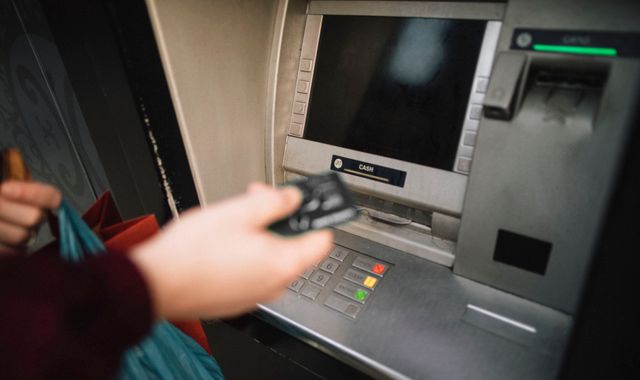Free cash machine closures hitting the poor hardest, says consumer group
Written by News on 18/09/2019
Free-to-use cash machines are disappearing faster from poorer areas than more affluent ones.


Consumer group Which? says it means those most reliant on cash and who can least afford to pay for withdrawals are facing charges or being forced to travel to access money for free.
And it is calling on the Chancellor Sajid Javid to implement a cash guarantee.
Which? said its analysis found that the most deprived areas across the UK had seen a reduction of 979 free-to-use machines – equivalent to 5.7% of their ATM network.
The least deprived areas lost 223 free cashpoints – equivalent to 3.9% of their network of machines.
Birmingham Ladywood, which has a large proportion of its ATMs in deprived neighbourhoods, saw the biggest losses, with a reduction of 47 free machines.
Which? assessed whether areas were deprived based on the Indices of Multiple Deprivation (IMD), using factors such as employment, income, crime and healthcare.
Neighbourhoods were grouped into 10 bands – with those in the lowest two classified by Which? as the most deprived and those in the highest two the least deprived.
Data from ATM network Link shows nearly one in 10 (9%) free cashpoints across the country had closed or switched to fee-paying during a 17-month period after changes to how the network is funded were set out.
Which? chief executive Anabel Hoult and Natalie Ceeney, chairwoman of the independent Access to Cash Review, have written to Mr Javid, calling on the Government to take action to guarantee people’s ability to access and pay with cash.
Jenny Ross, Which? money editor, said: “We know that people in more deprived communities tend to rely heavily on cash, so it’s deeply concerning that those who can least afford it are being hit with the extra burden of hefty fees to access their own money as free cashpoints close at an alarming rate.
“The Government and regulators must urgently get a grip on these rapid changes to the cash landscape and guarantee people across the UK can continue to access this important payment method for as long as it is required.”
A Treasury spokesman said: “Technology has transformed banking for millions of people, but we know that many still rely on cash.
“That’s why we’re co-ordinating work across Government, regulators and industry so we can protect access for everyone who needs it.
“Part of this work includes investing over £2bn in the Post Office since 2010, giving people across the country local access to everyday banking services at one of its 11,500 branches.”
Martin Kearsley, banking director at the Post Office, said: “Almost every bank customer – whether personal or small business – can access their usual high street bank account to get cash out at any Post Office branch, make a cash or cheque deposit or check their balance.
“The services we offer are vital, especially for rural and remote communities, and they provide an opportunity for face-to-face interaction, which is important to many.”
Here are the numbers of free-to-use ATMs lost between January 2018 and May 2019 according to Which?, followed by the percentage reduction in free ATMs this represents. Figures include ATM closures as well as conversions to fee-charging ATMs:
- Northern Ireland, 296, 15.8%
- North West, 656, 10.9%
- North East, 245, 10.7%
- Wales, 266, 10.7%
- Scotland, 562, 10.4%
- West Midlands, 477, 10.3%
- Yorkshire and the Humber, 451, 10.2%
- East Midlands, 359, 9.6%
- South West, 378, 9.2%
- East, 390, 8.7%
- South East, 570, 8.5%
- London, 684, 8.5%
(c) Sky News 2019: Free cash machine closures hitting the poor hardest, says consumer group







